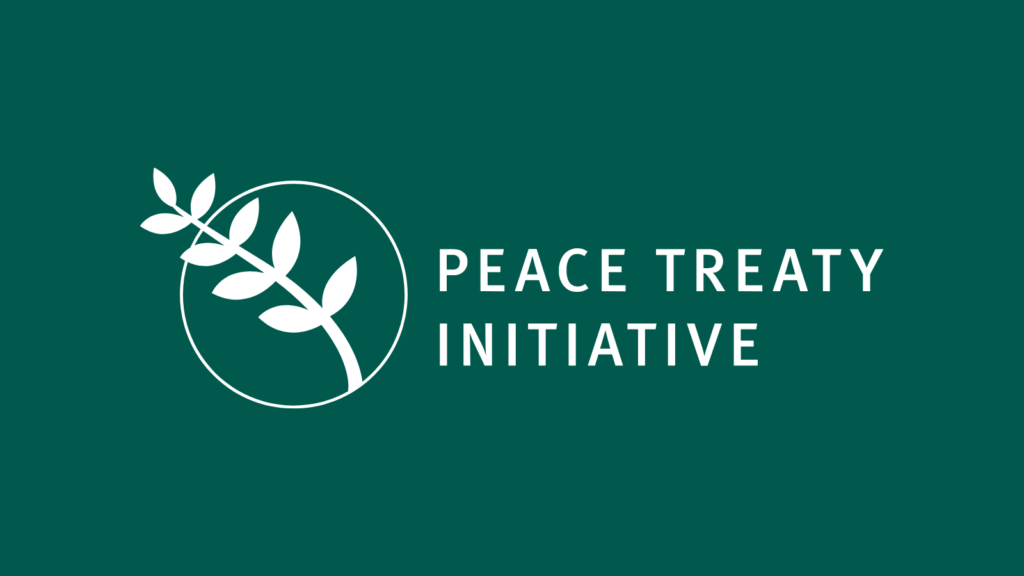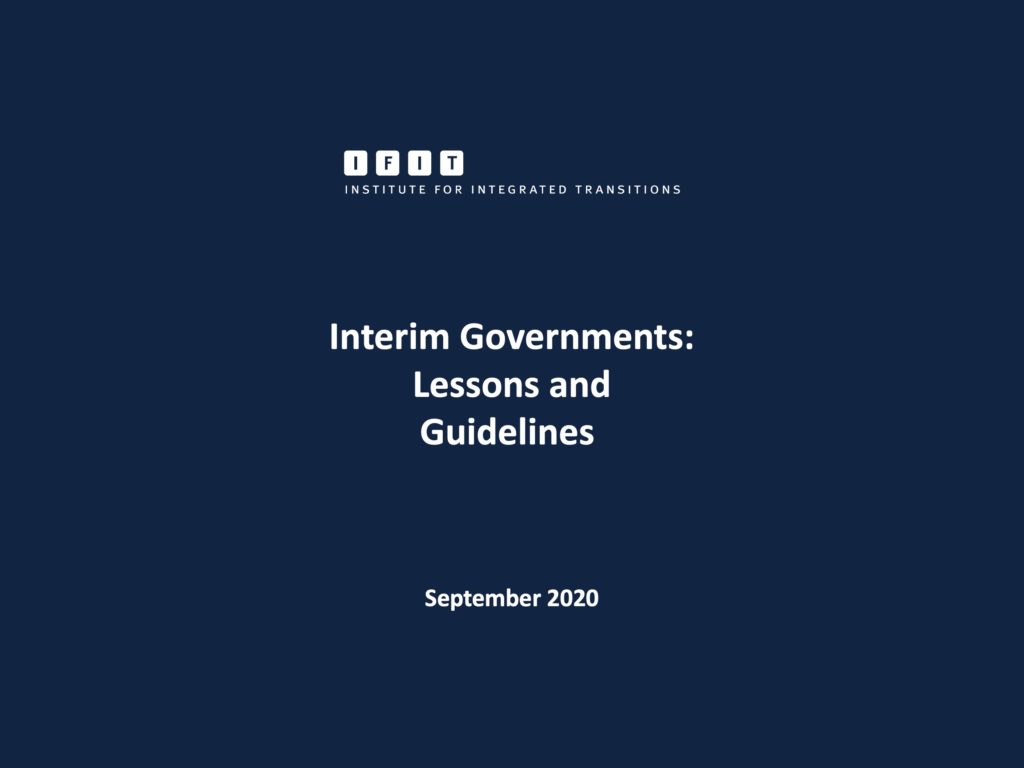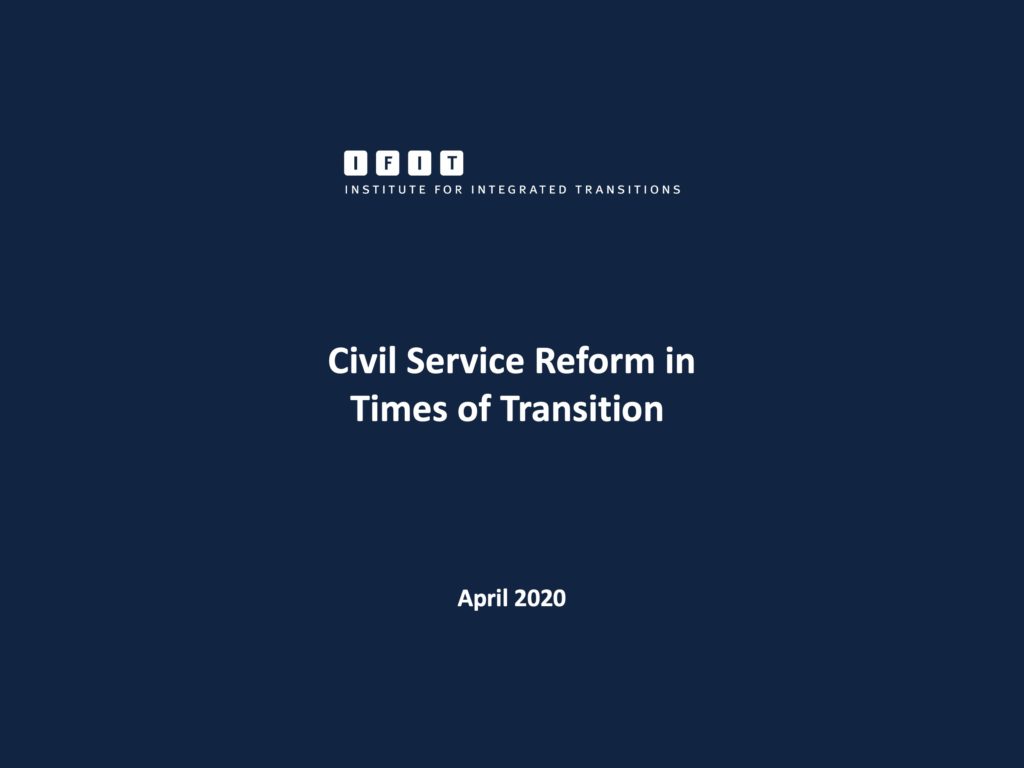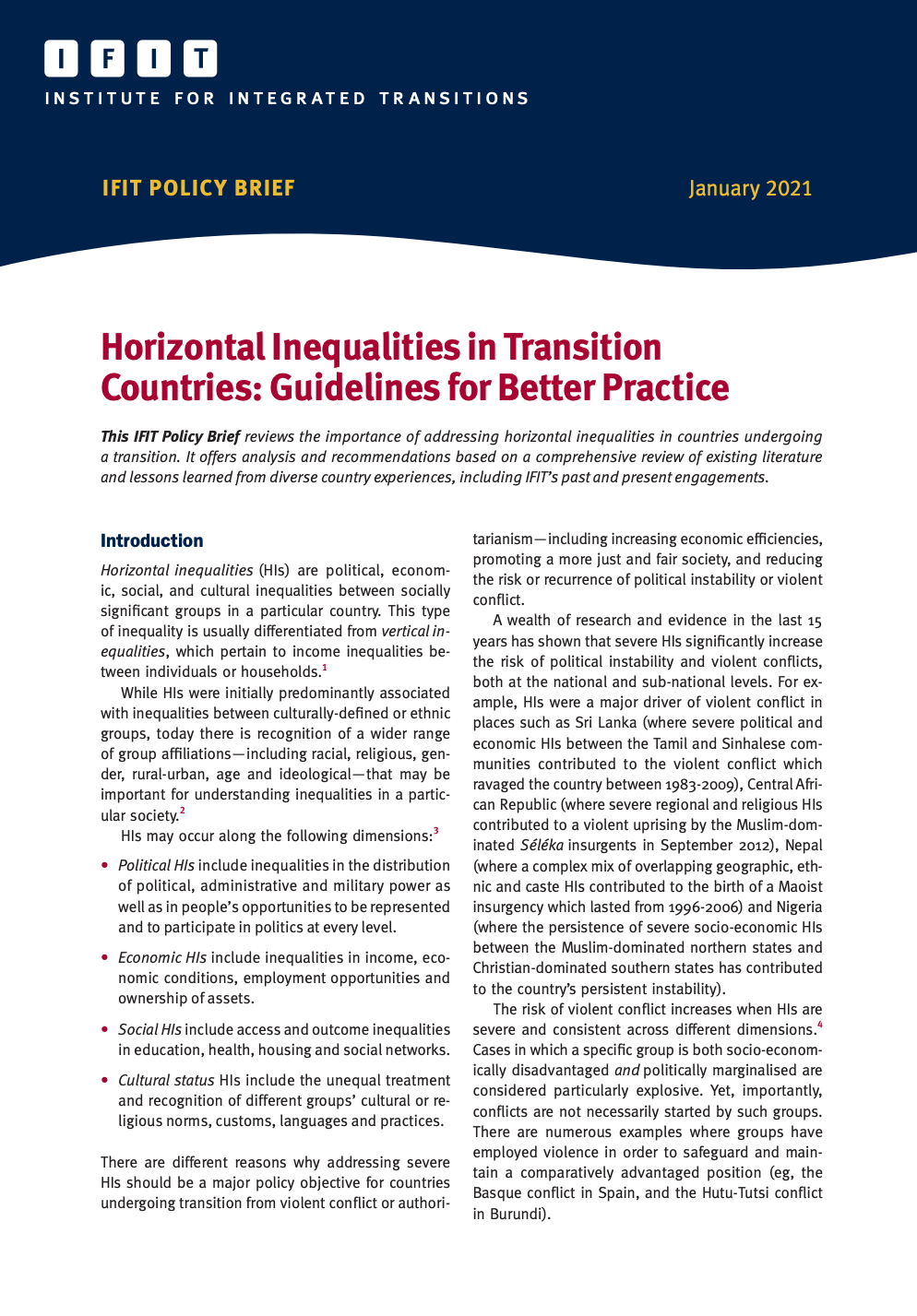Publication
/ Transition Assistance
Horizontal Inequalities in Transition Countries: Guidelines for Better Practice
Horizontal inequalities (HIs) are political, economic, social, and cultural inequalities between socially significant groups in a particular country. A wealth of evidence in the last 15 years has shown that severe HIs significantly increase the risk of political instability, but they are rarely systematically targeted during transitions. To the contrary, in most places, HIs have actually worsened – thus creating a long-term source of instability and threat of conflict. This IFIT policy brief shows how transition leaders can act to reduce this risk, resulting in a more just and fair society as well as a more economically productive one.
Successfully addressing HIs in transition countries is an inherently political process. Policymakers need to address the HIs of disadvantaged groups while minimising the chance of backlash from advantaged groups and avoiding policies that harden group identities. With this in mind, this policy brief analyses 1) key policy options for addressing HIs – including direct, indirect and integrationist approaches; 2) trade-offs between HIs and other policies; 3) how to time HI policies; and 4) how to make change politically acceptable.
The DOI registration ID for this publication is: https://doi.org/10.5281/zenodo.10474300
You may also be interested in
![IFIT Peace Treaty Initiative]()
Public Commentary
/ 11 November 2020
Building the International Law of Peace
By Mark Freeman / IFIT Founder and Executive Director
![]()
publication /
Transition Assistance
Interim Governments: Lessons and Guidelines
Available in:
-
Español
-
Français
-
العربية
![]()
publication /
Transition Assistance
Civil Service Reform in Times of Transition
Available in:
-
Español
![]()
publication /
Transition Assistance
Building Peace from the Middle
Available in:
-
Español
![]()
publication /
Transition Assistance
Entrepreneurs as Peacebuilders in Fragile States
Horizontal inequalities (HIs) are political, economic, social, and cultural inequalities between socially significant groups in a particular country. A wealth of evidence in the last 15 years has shown that severe HIs significantly increase the risk of political instability, but they are rarely systematically targeted during transitions. To the contrary, in most places, HIs have actually worsened – thus creating a long-term source of instability and threat of conflict. This IFIT policy brief shows how transition leaders can act to reduce this risk, resulting in a more just and fair society as well as a more economically productive one.
Successfully addressing HIs in transition countries is an inherently political process. Policymakers need to address the HIs of disadvantaged groups while minimising the chance of backlash from advantaged groups and avoiding policies that harden group identities. With this in mind, this policy brief analyses 1) key policy options for addressing HIs – including direct, indirect and integrationist approaches; 2) trade-offs between HIs and other policies; 3) how to time HI policies; and 4) how to make change politically acceptable.
The DOI registration ID for this publication is: https://doi.org/10.5281/zenodo.10474300
You may also be interested in

Public Commentary / 11 November 2020
Building the International Law of Peace

publication / Transition Assistance
Interim Governments: Lessons and Guidelines
- Español
- Français
- العربية

publication / Transition Assistance
Civil Service Reform in Times of Transition
- Español

publication / Transition Assistance
Building Peace from the Middle
- Español



